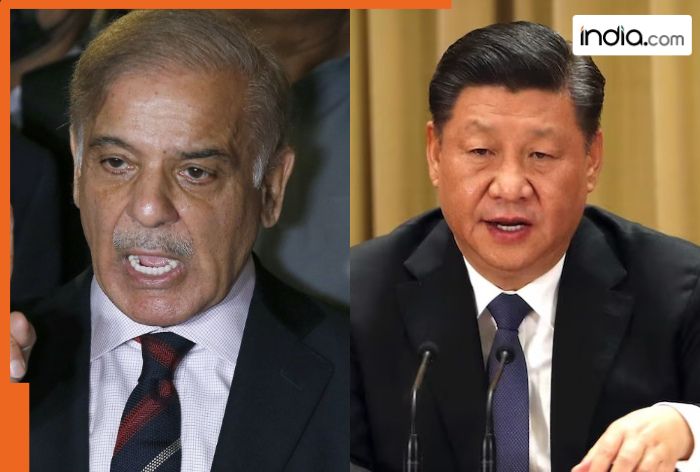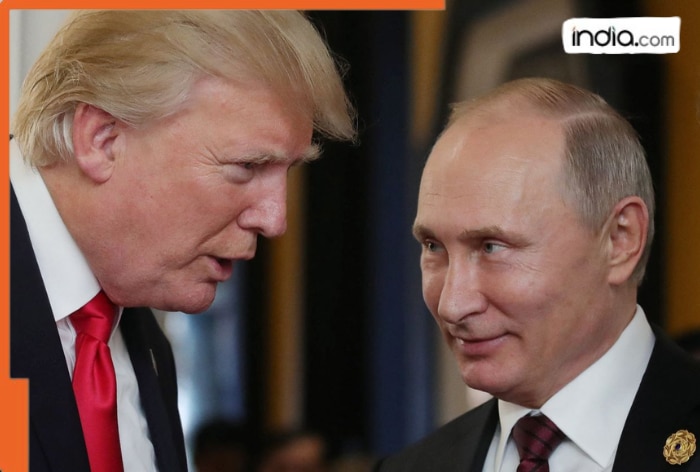Rs 4980000000000: Is China playing a double game with close friend Pakistan? Pakistani minister admits that mega CPEC project…., says, ‘dropped..’
The China-Pakistan Economic Corridor (CPEC) is one of the most significant infrastructural financial pledges that Beijing has made to any country.

For decades, the relationship between Pakistan and China was often described as an “all-weather” friendship, marked by deep strategic trust, defence cooperation, and shared geopolitical interests. The relationship, which ranges from military exchanges to multi-billion-dollar investments under the China-Pakistan Economic Corridor (CPEC), was often described as iron-clad. However, in recent years, there has been a notable but subtle strain in the relationship.
Why did Pakistan fail to capitalise on the CPEC mega project?
The once seamless partnership is now beginning to show signs of strain in the relationship, caused by a mix of new regional dynamics, security issues, economic slowdown, and expectations from each side that went unmet. As China re-examines its global priorities and Pakistan begins to address internal instability and evaluate the economy, the close ties seem to be cooling.
The China-Pakistan Economic Corridor (CPEC) is one of the most significant infrastructural financial pledges that Beijing has made to any country. It increasingly appears that Pakistan has struggled to reap its full benefits.
What made the Pakistani minister admit that the ‘game changer’ opportunity was dropped?
In a rare admission, a senior minister has acknowledged that Pakistan could not benefit from the China-Pakistan Economic Corridor and Chinese investors were forced to flee due to attempts by the previous government to scandalise their investments, as reported by news agency PTI.
Pakistan’s economy missed many opportunities to take off, and “we also have dropped the catch of game changer CPEC,” Planning Minister Ahsan Iqbal was quoted as saying by The Express Tribune newspaper, as cited by news agency PTI.
The China-Pakistan Economic Corridor (CPEC), which connects China’s Xinjiang and Pakistan’s Gwadar port in Balochistan, involves a USD 60 billion investment and is considered as the flagship project of the multi-billion-dollar Belt and Road Initiative (BRI), which facilitates President Xi Jinping’s plans to expand China’s political influence through infrastructure projects around the world and through projects funded by the Chinese government.
While speaking at the inaugural session of the two-day DataFest Conference, organised by the Pakistan Bureau of Statistics (PBS), Iqbal on Tuesday used a cricket analogy to explain that the country had not been able to benefit from the CPEC and blamed the Pakistan Tehreek-e-Insaf party of former prime minister Imran Khan for the failure, reported news agency PTI.
Iqbal said that China helped Pakistan in difficult times, but the opponents tried to scandalise the Chinese investment and forced it to leave Pakistan. It was probably rare that a sitting senior cabinet minister admitted that the CPEC objectives could not be achieved, the newspaper said. As per the paper, there has been little progress on CPEC since 2018.
It added, “Fourteen meetings of the CPEC Joint Cooperation Committee (JCC) — the highest decision-making body — have been held since both countries launched the strategic initiative. But official circles acknowledge that the productive work had been done till the seventh JCC, which met in the fall of 2017.”
Pakistan has reaped short-term benefits from the CPEC, but long-term objectives have remained largely unachievable, the paper said.
“The second phase of CPEC, aimed at shifting Chinese industries to Pakistan and increasing the country’s exports through rapid industrialisation, could not kick off,” it said. As per PTI report, The paper reported that even more than 10 years after the implementation of CPEC began, both sides in the last JCC believed that it was necessary to implement support measures for Special Economic Zones (SEZs) and improve supporting facilities and services to attract enterprises to settle in the SEZs.
The Pakistani side assured them that it would continue to improve the business environment, continuously take facilitation measures, and support and attract foreign enterprises, including Chinese enterprises, to invest and operate in the SEZs, it added.
(With PTI Inputs)
What's Your Reaction?




















































